The Tale of Genji (Genji Monogatari) is a 1987 anime movie directed by Gisaburō Sugii and is a surreal, melancholic mix of fact and fantasy. It’s based on (large portions of) The Tale of Genji written by Murasaki Shikibu back in the Heian period (794 to 1185) of Japanese history, also arguably the world’s first true “novel”.
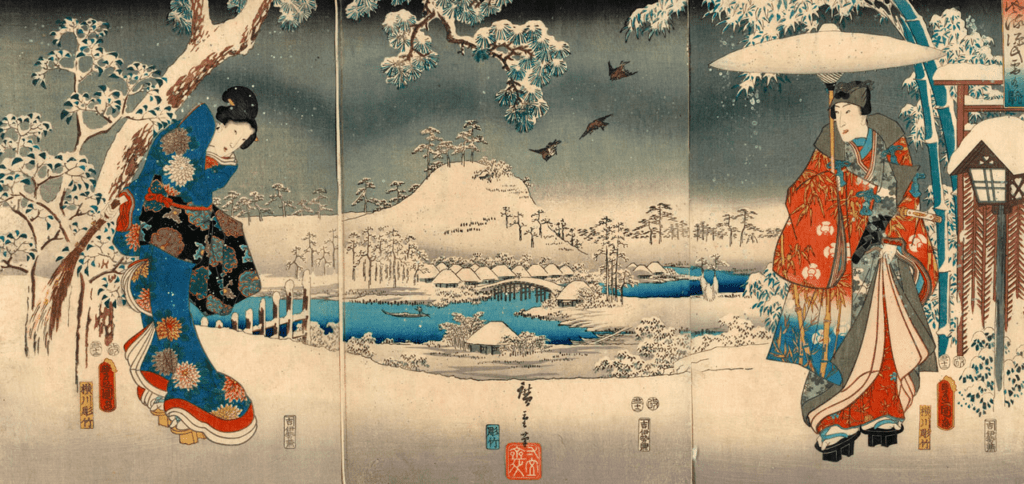
Lord Hikaru Genji is the second son of the Emperor from his beloved concubine, and much harassed by the Emperor’s first queen, lives a life as a dependent retainer. He flits from woman to woman, seeking in them some ghostly semblance of his beloved dead mother, many of which are scandalous affairs. His affair with his step-mother, the second queen of his Emperor father, and his affair with the niece of the same step-mother (because they look so alike) are particularly disastrous.
There is complicated morality in here. In the Heian period, affairs were commonplace but the only condition was that they be conducted in discretion. The author was apparently a court lady-in-waiting, and writes in poetic verses of the court intrigues and liaisons of the time. I quote from the book:
“Would that, like the smoke of the watch-fires that mounts and vanishes at random in the empty sky, the smouldering flame of passion could burn itself away”
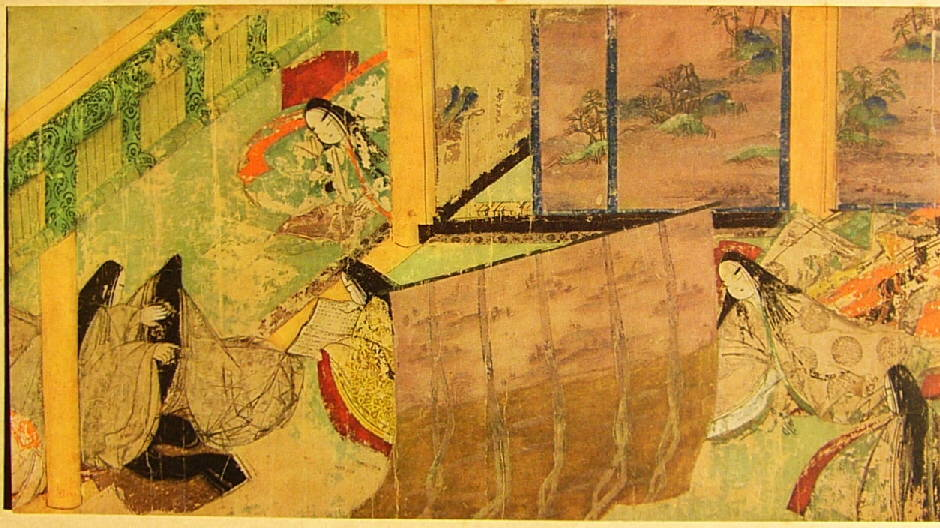
The Tale of Genji also alludes to the disempowerment of women during that era, as they were dependent completely on the largesse of the men whose fancy they caught, whether they willed it or not. Genji too is guilty of this. Quoting again from the book:
“It is very foolish for a woman to let a little dalliance upset her so much that she shows her resentment openly. He has his adventures– but if he has fond memories of their early days together, his and hers, she may be sure that she matters.
A commotion means the end of everything. She should be quiet and generous, and when something comes up that quite properly arouses her resentment she should make it known by delicate hints. The man will feel guilty and with tactful guidance he will mend his ways. Too much lenience can make a woman seem charmingly docile and trusting, but it can also make her seem somewhat wanting in substance. We have had instances enough of boats abandoned to the winds and waves.”
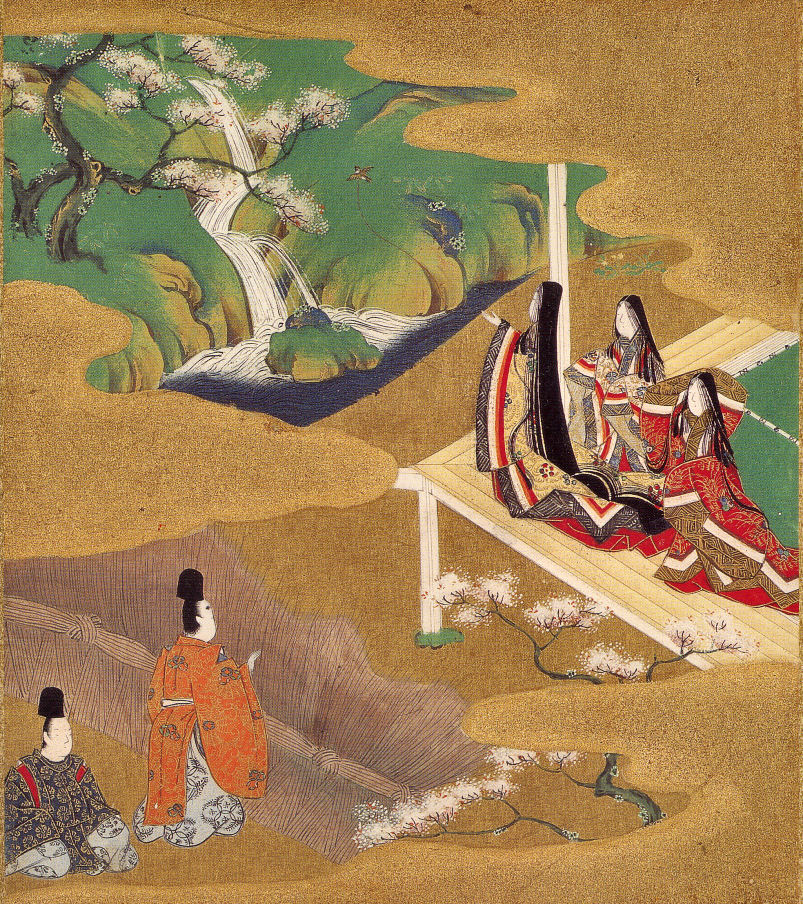
Can we bypass all this, by simply blaming the odious customs of the past? For some readers/ anime watchers, this may be difficult to overlook, in order to appreciate the lyrical writing, the historical accuracy or even the artistic finesse. But the subject-matter covered in the book and the movie has been narrated with sensitivity, and to be honest, still dogs our steps even in these more modern times.
There’s also a spooky effect to the whole business. I never expected it going in. The background score is by the famous Haruomi Hosono and is quite a hair-raising business — especially when at one point in the story, Genji’s old vengeful lover manages to possess the body of his wife, Aoi. Appears that jealousy-based “malign spirit” (ikiryo) possession was also quite a frequent theme in historical Japanese literature.
Ultimately, Genji is exiled at the end of the movie. The exile comes not because of his affairs with his step-mother and the child-bride — but because of an affair with the daughter of a rival political faction. The movie departs from the book here, as a psychological growth arc is added-in for Genji. In the ending scene, he ends up uncovering a sakura tree where his dead mother’s spirit resides, thus freed from that burden. From the book:
“In the mountains, the cherry trees were in full bloom, and the farther he went, the lovelier the veils of mist became, until for him, whose rank so restricted travel that all this was new, the landscape became a source of wonder.“
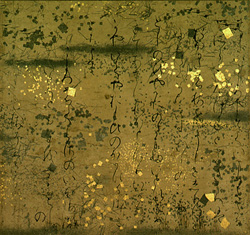
Overall, the movie captures the poetic, dream-like abstract overtones of the book quite well. The art style is more 2D in effect, made up of vignettes from Japanese watercolor brush painting. In fact, one of the scenes in anime appeared to be a direct rendition of old illustrations from the book. In some ways, it reminded me of Studio Ghibli’s The Tale of the Princess Kaguya. If you’re looking for a segue into the book, then this 1987 anime movie version is a good place to start.
Watch it with English subtitles on YouTube.
Rating: 7/10
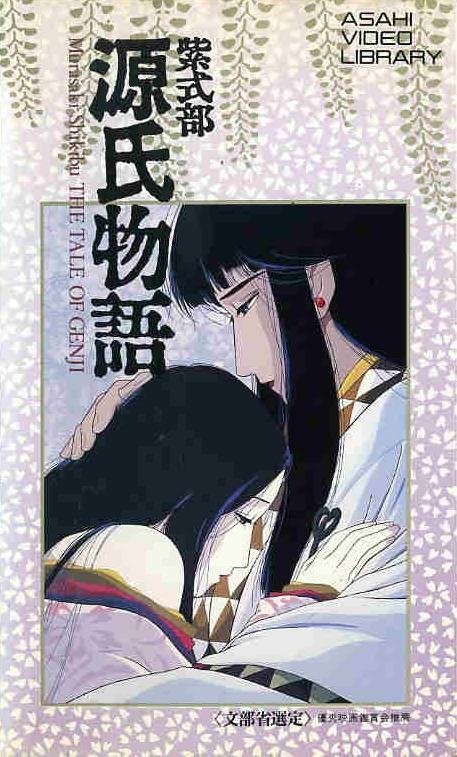
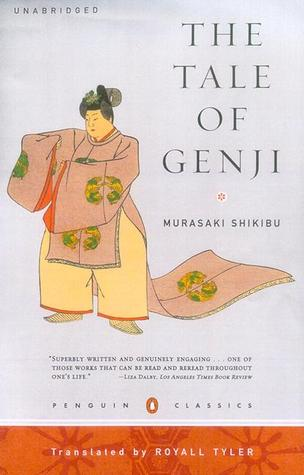
5 replies on “Tale of Genji: Anime Movie Review”
Interesting post and saw it too – very trippy ending to the anime
I am passionate about Japanese literature, and I have long been meaning to read this great classic. The film doesn’t interest me as much as the book, but I am glad to read your post about it. Your line about affairs not being frowned upon as long as they were discreet made me think how little things change across culture, across time.
(Thanks for visiting me.)
Glad to e-meet a fellow Japanese lit fan! And all too true about how the more things change, the more they remain the same. As always, we will disguise it all up as the social mores of the time …
Love your blog, BTW. Always very well-written and thoughtfully presented. And look forward to your R.I.P. challenge progression. 🙂
Thank you for he sweet comment about what I do at Dolce Bellezza.
Are you participating in the R.I.P. XV Challenge as well? It is truly a harbinger of autumn for me, even more than all the pumpkin spice items available now in the grocery stores 😉, which I have enjoyed since I began blogging in 2006. The novel, Picnic at Hanging Rock, seems to be the most appealing judging from comments I received about it.
Yes! I’m trying out Mysteries of Udolpho for the challenge. I haven’t read the book for Picnic at Hanging Rock, but I’ve seen the 1975 movie and that was just mind-blowing. It would be a superb pick for R.I.P. Look forward!